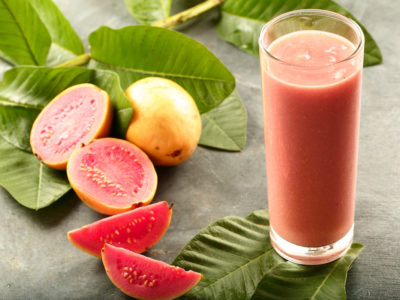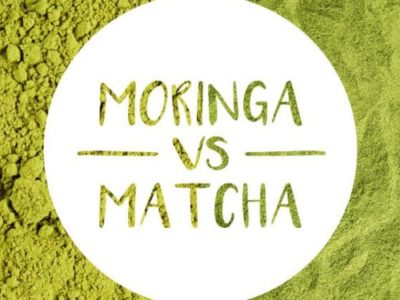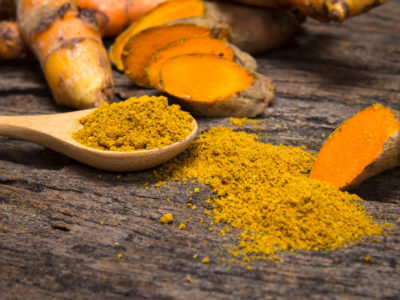Table of Contents[Hide][Show]
Is Seaweed Good for You?
Is seaweed as healthy as others say it is? First, let’s learn a little about what seaweed is, and then we’ll take a look at the potential health benefits you receive when you include this food source in your next meal.
What Are Seaweeds?
Edible seaweed has been a big part of Asian diets for thousands of years. It is commonly found in many dishes in Japan, China, and Korea.
Seaweeds are ocean plants containing high amounts of various nutrients, including some we may not be getting enough of, such as iodine. This can be a good thing or a bad thing, depending on your unique dietary needs.
Your thyroid function and the species of seaweed also factor into the effectiveness of this superfood for your overall health.
Let’s dive into the good, the bad, and the ‘weedy’ of seaweed.
The Good
Seaweeds are really high in many of the vitamins and minerals we need for optimum function. These include potassium, iodine, and vitamins A, B, C, E, and K. Of those minerals, iodine is especially significant because it’s a vital component in thyroid health.
Iodine values in seaweed vary among species and where it’s grown. It ranges anywhere from around 16 micrograms per gram in nori, all the way up to 8,165 mcg/g for Icelandic fingered tangle!
Variety really does matter. This is great if you’re one of the savvy folks who have given up iodized table salt in favor of natural salt alternatives like sea salt or pink Himalayan salt.
In general, seaweed has a significantly higher iodine content than other vegetables. The daily intake guideline for iodine for adults is 150 to 1,100 mcg per day.
Depending on the type of seaweed you’re eating, you may not be hitting this target or you could be surpassing it!
Related
Genius Foods – 7 Superfoods For Brain Health
What do blueberries, almonds, and dark chocolate all have in common? Aside from tasting great, scientists categorize them as superfoods for brain health! Learn more about genius foods you should be eating.
Chock Full o’ Goodness
Seaweed really is a superfood. It’s significantly higher in calcium, folate, iron, vitamin B complex, vitamin E, and zinc than broccoli, one of the superheroes of the land-veggie kingdom.
It also contains many other minerals that folks are often deficient in, such as chromium, magnesium, selenium, manganese, bromine, and boron.
Considering you can consume very little to get great value from it, this makes it an appealing supplement to your diet.
Here are some of the other purported benefits of eating seaweed on a regular basis:
- Detoxifying
- Antioxidant
- Anti-inflammatory
- Anti-microbial
- Provides healing benefits for diabetes, cancer (especially breast cancer), radiation poisoning, and obesity
- Prevents dental cavities
- Protects against influenza B virus
- Beneficial for cardiovascular and digestive health
- Helps keep skin and hair healthy
- Helps maintain electrolyte balance in the body
- A natural diuretic that can help reduce bloating from edema (swelling from excess water in certain tissues of the body)
- Enhances libido and may help improve sperm health in men
- Improves energy levels
- And many more!
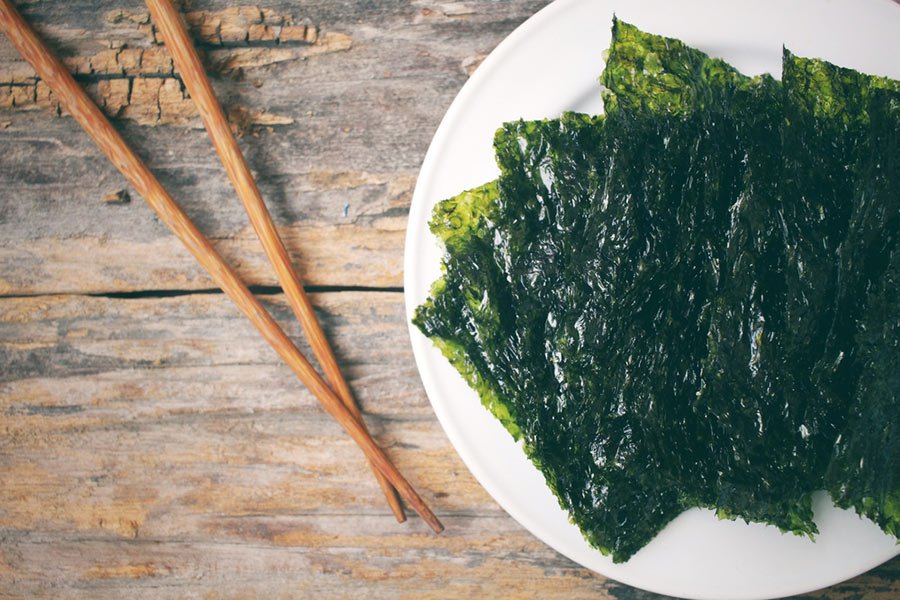
The Bad
Since there are many varieties of seaweed supplements and pills on the market, you may decide it is easy to include it in your diet that way.
However, supplementation in capsule form is not always the best way to go, unless you are very unwell. In which case, it’s always best to work with a qualified and skilled practitioner.
Although capsules are more regulated and you can tell how much of each nutrient is present, it doesn’t always play out that way in your body.
You may have gut dysfunction, which means you are not absorbing the benefits of the seaweed. Also, supplements may contain types of seaweed not good for you personally.
Additionally, supplements may even be unbalanced in nutrients for your needs, leading to other problems down the line. For example, products high in potassium, vitamin K, and iodine can also be a bad thing. Vitamin K can interfere with blood thinners, potassium can cause issues for people with kidney problems, and iodine can be bad for cholesterol levels and the heart.
Whole foods in their natural state are more bioavailable. They contain all the added cofactors your body needs to use them properly in a format your body understands.
It’s also easier for your body to eliminate any excess when foods are in their natural form. Extracts and isolates of seaweed are not in their whole state and may either work very inefficiently or have undesirable effects.
Related
The Medicinal Properties Of Guava And Its Leaves [INFOGRAPHIC]
In this article, discover guava health benefits for disease prevention and overall wellness!

What About Weight Loss?
Some types of seaweeds are shown to be beneficial for the digestive system and improve the production of enzymes and fat metabolism, while others can work against the body’s natural processes or have little affect on weight loss.
It’s been shown that alginates (an extract) from kelp may help block fat absorption in the body by up to 75% (sounds great, right?), but the process is quite unhealthy.
Our bodies produce lipase, a fat-digesting enzyme, to help us break down and absorb healthy fats into the body. Fats also signal our gallbladder to release bile, which, if it chronically does not, can lead to gallstones later in life.
Laminaria digitata, another form of kelp from the French coast, can suppress the appetite. While that may be helpful to those prone to overeating, it’s not going to trick you into eating a salad when you normally eat a burger and fries so the benefit is nominal at best.
However, there are two particular types of seaweed that have been proven beneficial for fat loss and fitness, and those include brown algae like wakame and green algae like chlorella.
Brown algae contains a thermogenic compound called fucoxanthin that has tremendous fat burning effects. Let’s discuss this compound first and then talk about the many benefits of chlorella.
Fucoxanthin
Fucoxanthin is a carotenoid that is found in brown seaweed like wakame and hijiki. These seaweeds are often used in Asian foods like miso soup and sushi rolls.
Carotenoids are the pigment found in brightly colored foods and are crucial to maintaining good health. Fucoxanthin, lutein, beta-carotene and lycopene are all different carotenoids offering different health benefits.
Fucoxanthin offers a number of different health benefits including assisting in the prevention of cancer, stroke, and heart disease, along with helping to reduce and control blood sugar and insulin levels in people with type 2 diabetes. Of particular interest is its ability to aid in fat loss though.
It appears that this particular carotenoid is able to help white fat cells behave as brown fat cells. Brown fat burns energy as opposed to storing it the way white fat does. Not only can you burn more fat if you increase the amount of fucoxanthin in your diet, you may burn more visceral fat, the stubborn, very dangerous fat that resides around the organs of the abdomen. Along with posing a very real health concern, abdominal fat is also a real trouble spot for most people. Any help in this area is a huge advantage.
Studies done at Hokkaido University indicate fucoxanthin promotes fat burning by increasing expression of thermogenin. Thermogenesis is the process by which the body increases its metabolic rate, requiring utilization of internal stores of energy such as fat. Fucoxanthin supports metabolism without stimulating the central nervous system.
Russian researchers conducted a double-blind, randomized, placebo-controlled clinical trial with 150 obese women. It involved having the overweight women follow a meal plan of 1,800 calories a day while taking fucoxanthin or a placebo. The two key results:
Those who received fucoxanthin lost an average of 14.5 pounds in just sixteen weeks, versus those who received the placebo pill, who lost only 3 pounds.
Participants taking fucoxanthin raised their metabolic rate an average of 18.2 percent.
In addition, body fat loss was 11.8 pounds in the fucoxanthin group, compared to 2.8 pounds in the placebo group. That’s a 450 percent greater weight loss and 422 percent greater fat loss, respectively. The women taking fucoxanthin also received reductions in liver fat, blood pressure, triglycerides, and C-reactive protein (CRP).
Chlorella
Chlorella is a nutrient-rich fresh water algae. It binds with toxins in the bowel, aiding in detoxification and affects genes that support fat metabolism. Studies suggest that chlorella can help in the elimination of cadmium, lead, mercury and uranium from the body and may work in similar ways with dioxins, PCBs and other such chemicals.
The super seaweed chlorella has been shown to have benefits when it comes to fat loss according to research. A twelve week study was published in the Journal of Medicinal Food by Japanese researchers who took 17 men with a healthy lifestyle and another 17 men with an unhealthy lifestyle and had them supplement with chlorella. At the end of the study both groups saw improvement in overall cholesterol levels, blood sugar, and a drop in body fat percentage.
Also, chlorella is packed with chlorophyll that can help alkalize the body and speed the recovery of athletes, improve energy levels, and support joint health.
When purchasing chlorella make sure to purchase “broken cell wall” chlorella because it is the only form where humans can break down and digest all of the nutrients.
So, while seaweed can possibly help to aid weight loss, it should be a part of a much broader healthy eating and lifestyle adjustment, and you should pay attention to which kinds you are consuming and their effects. Remember, seaweed may be of benefit to you, but it will never be a cure-all.
What About Spirulina and Other Types of Algae?
A word of caution is to check whether what you’re buying is actually seaweed or algae. Spirulina and chlorella are both highly acclaimed supplements (and don’t we all know someone who swears by them?), but they are algae.
Chlorella is the cousin of spirulina. They both help in strengthening the body’s cardiovascular system.
People with autoimmune diseases need to be very cautious with algae as they stimulate the immune system, which isn’t a good thing in their case.
Another caveat goes back to the iodine levels in these plants. For many people, the extra iodine is beneficial.
For those with thyroid dysfunction or under chronic stress, which places a strain on the thyroid, it’s not always such a good thing.
A final consideration is the potential interactions between seaweeds and pharmaceutical drugs.
Certain seaweed varieties can interfere with medications such as blood-thinning drugs and those for hyperthyroid conditions.
If you have any form of a chronic health condition, especially related to cardiovascular or thyroid health, please seek sound advice from a healthcare professional before adding seaweed to your diet.
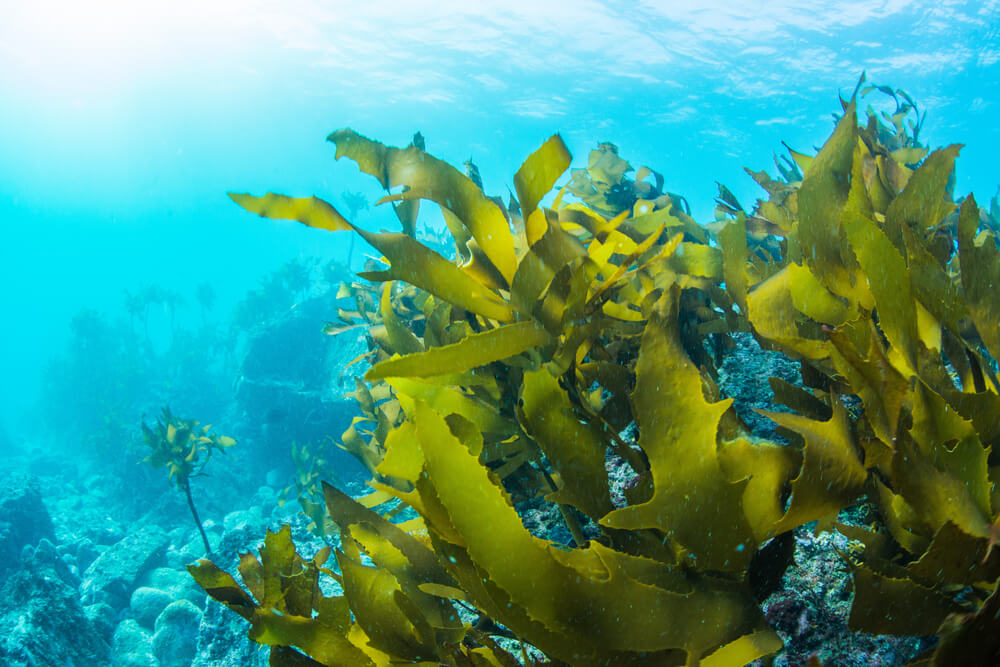
The Weedy
Should you eat seaweed? Well, clearly it’s not a yes-or-no answer.
Take into account these last few points before you go adding heaps to your shopping basket.
1. Consider Your Genetic Background
Those hailing from communities where seaweed has been a staple part of their lifestyles for many generations, like the Japanese, have constitutions adapted to a diet high in these plants.
If your genetic lineage is from Central Africa, it’s not likely your body will handle seaweeds daily. But then, the only way to be sure is to try it out, starting with small amounts and build from there.
If you start to notice negative effects, reduce your consumption.
2. Consider What Health Benefits You Are Looking for in These Plants
Carefully select the right types of seaweed based on their nutritional profile (the info is freely available online) and health benefits. Listen to your gut.
Only choose ones you feel are right for you, not just because they sound like a panacea, and you’re in a hurry to feel better.
Then follow the guidelines in the above point: start small and work up slowly, working with one type at a time.
3. Know the Taste
Do you like the taste? This one may seem a little irrelevant, but if you are trying to force yourself to eat something you don’t like because you think you should, the stress may totally outweigh the advantage you gain.
Stress causes a negative hormonal cascade in your body that depletes you of many vital hormones and nutrients. If you think you can learn to like it, and it’s fun for you to try new ways of cooking and eating it, go for it!
How Do You Like Your Kelp in the Morning?
Here are a few ways you can try to incorporate seaweed into your diet from baby steps to big lunges:
- Sprinkle kelp granules onto salads, egg dishes, homemade fries, or any other savory foods
- Eat nori seaweed-wrapped sushi or sushi rolls
- Add seaweed kombu (edible kelp) to soups and simmering bone broths
- Add powdered forms to juices and smoothies (be aware, they can be quite salty!)
- Get them in ready-to-eat snack form (just be sure to check the ingredients and avoid any that are cooked in vegetable or seed oils, like canola or sunflower, which are high in trans-fats)
- Try them in noodle form with your main meal
- Try them as a veggie side dish or as main part of your lunchtime salad
Is Seaweed Healthy for Pregnant Women and Children?
Since seaweed is an excellent source of iodine and protein, it then begs the question: is seaweed healthy for pregnant women and their children? Should they follow a seaweed diet?
The needs of our bodies when it comes to nutrition change from time to time. If a woman plans to get pregnant or is already bearing a child, they can benefit from iodine. Although it is a trace mineral, it is vital for the pregnant mother and the baby’s health.
As mentioned, iodine is critical in the production of thyroid hormones, which regulate the body’s metabolism. These include not only temperature but also heart rate and glucose, among others.
Some studies, such as the one published in Endocrine Abstracts, showed a link between miscarriages and low thyroid function.
The baby also depends on it to develop a healthy brain and nervous system. Iodine plays a central role in their cognitive growth later.
One of the benefits of seaweed is protein. Like quinoa, it contains complete amino acids, which are the building blocks of protein.
As the fetus grows, their demand for protein will only increase, and it’s important that their moms can keep up with that.
Choose the Right Seaweed
The answer to whether seaweed is good for you still depends on many factors, including how much iodine there is in seaweed. Too little or too much can be harmful to the thyroid glands. Too much iodine can also lead to high blood pressure, high cholesterol, and heart disease.
So far, most experts believe it’s okay to eat brown seaweed as long as it’s in moderation.
And what about dried seaweed?
As long as it’s good quality, you may obtain some iodine. Remember, though, some of these packs may also have a lot of sodium, offsetting the seaweed benefits.
Which of the Seaweeds Are the Best for You?
Another way to answer the question, “Is seaweed good for you?” or “Is nori healthy for you?” is to compare the different types of sea vegetables.
First, let’s compare algae and seaweeds, as people use these terms interchangeably. Algae are either multicellular or unicellular sea plants, while seaweeds are only multicellular.
In other words, not all types of algae are seaweeds. Seaweeds, meanwhile, are algae.
Seaweeds also come in different forms, sizes, and colors. The big ones are kelp, and they tend to group together to mimic a forest.
Experts, however, classify seaweeds according to their colors:
- Types of red algae include Irish moss, nori, dulse, and agar.
- Wakame seaweed, as well as kelp, arame, hijiki, and kombu, are brown seaweed.
- Sea lettuce is a type of green seaweed.
Their colors are due to the chlorophyll present. Chlorophyll is the substance found in plants that allows them to convert light into energy through a process called photosynthesis.
The greener the algae or weed, the more chlorophyll it may have. It will also tell you how close they are to the surface of the water.
Studies showed chlorophyll may help fight against cancer, acting similarly to chemotherapy. It is also known for its antioxidant properties and regulation of certain enzymes.
Brown seaweeds contain carotenoid pigments such as fucoxanthin. As mentioned earlier, current research suggests it may help prevent or reduce obesity and prevent cancer recurrence through apoptosis or cellular death.
At the end of the day, it’s all about what your body needs and what is right for you. To help you decide, talk about it with your health practitioner or dietitian/nutritionist.
Can You Buy Packed Seaweed in Health Food Stores?
These days, you don’t need to go to the beach and forage yourself to maximize seaweed health benefits. You can now buy seaweeds in various forms:
- Algae oil
- Seaweed sheets
- Roasted seaweed
- Seaweed pills
- Seaweed supplements
Each of these has its pros and cons. For example, one of the benefits of dried seaweed is it’s convenient and easy to eat.
Is seaweed healthy in these forms, though? As mentioned before, not all types of seaweeds in the market are great.
Research and work closely with your doctor’s medical advice to figure out the best ones for your health.
Is Seaweed Healthy When Cooked?
There are many ways to eat seaweeds. You can:
- Toast some sesame seeds and add it to your seaweed salad for some crunch.
- Stir-fry sea lettuce flakes with sesame oil and your favorite veggies such as broccoli or cauliflower.
- Place some roasted seaweed or nori on your miso soup.
Is seaweed healthy after you cook it?
You can actually eat seaweed raw and since people value them because of their flavor, it’s best not to overdo their preparation.
This means, if it’s possible, don’t cook them or expose them to high temperatures. This is to preserve the taste more than anything else.
So should seaweed salad and seaweed snacks become a part of your diet?
They should be, considering all the benefits of seaweeds to your health and overall wellness discussed here!
You May Also Like…
Editor’s Note: This post was originally published on February 27, 2017, and has been updated for quality and relevancy most recently on April 13, 2021.


